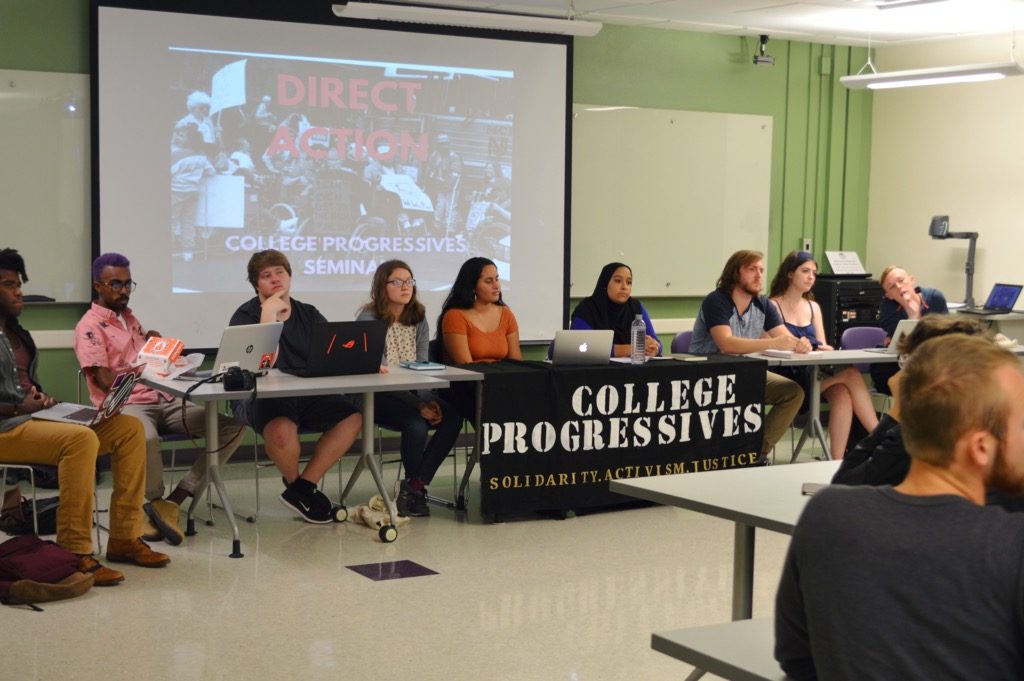
Binghamton University students gathered on the first floor of the University Union on Monday night to discuss direct action in politics and activism.
The event, hosted by the BU College Progressives and led by the organization’s executive board, asked attendees to think about direct action and what it meant to them.
According to the group, direct action is any form of public protest. One example given was the removal of Confederate flags and monuments throughout the United States. They said that on the BU campus, an example of direct action would be the sit-in at the Couper Administration Building that occurred last semester. The sit-in, which lasted over two weeks, was a response to the proposed blue-light call boxes and camera system on the West Side of the city of Binghamton.
Clark Oliver, a member of the College Progressives E-Board and a sophomore double-majoring in political science and Africana studies, said direct action has been proven to be effective at BU.
“The discussion on direct action is especially important because, like we covered, electoral politics can only achieve certain means,” Oliver said. “Direct action has worked at BU before, whether it’s what we did with Sodexo workers last semester in helping them successfully raise wages or our sit-in of the Couper Administration Building.”
In light of recent events in Charlottesville, the discussion brought up the antifa, or anti-facist, movement. According to the College Progressives, antifa is focused on confronting the ideology of the far right and white supremacists through direct action. Numerous members of the College Progressives spoke about how nonviolence doesn’t always work, holding that violence is sometimes necessary when facing white supremacists or neo-Nazis.
According to Jacob Chank, a junior majoring in political science, successful instances of direct action weren’t always nonviolent.
“A lot of the things we look at as “nonviolent” direct action only turned out the way they did because of the threat of violence being present,” Chank said. “Antifa is anyone who is organizing against fascism.”
At one point during the discussion, a student attendee said he opposed this view of direct action, but the opposing student declined Pipe Dream’s request for comment following the event.
The discussion also highlighted the faults in the Electoral College, and why direct action is synonymous with activism. Jonathan Ferrera, a member of the College Progressives and a junior double-majoring in English and philosophy, said progressives should continue to support freedom of speech.
“I’m scared that we’re developing a precedent to shut down other people’s voices and that other political parties will use that against us,” Ferrera said. “We need to support freedom of speech so that we never have a time when college progressives aren’t allowed to speak their peace.”
According to attendee John-Paul Keblinski, an undeclared freshman, the discussion showcased the importance of citizens questioning the current political system and taking action.
“I think this event was a good explanation of some of the foundation principles of radical activism and why it’s okay to step outside the confines of how the system works, because the system doesn’t always work fairly,” Keblinski said. “It’s important to talk about direct action because historically speaking, and particularly speaking today, it’s one of the main ways we get change.”


